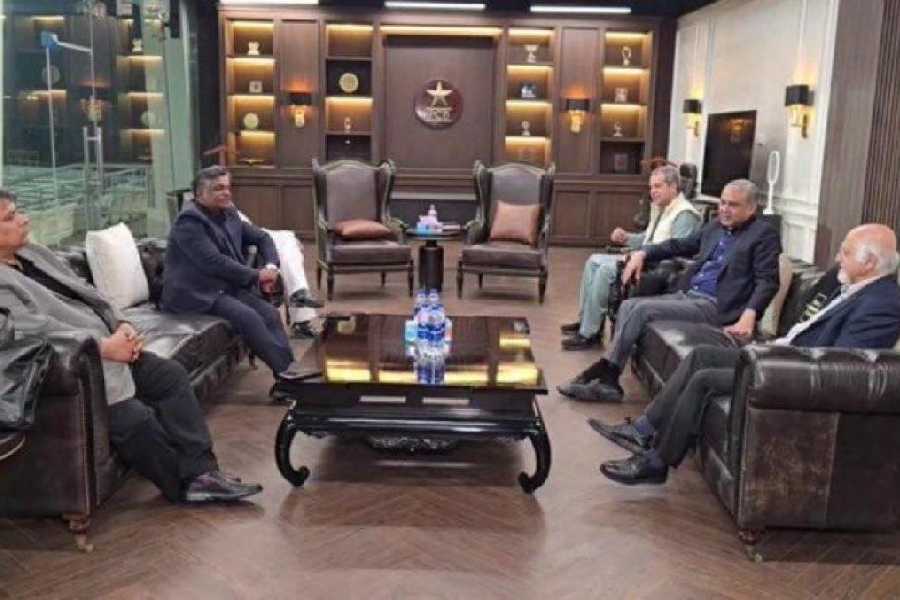Oct. 27: If Congress veteran Makhan Lal Fotedar feels that Sonia Gandhi overestimated her son's leadership abilities and pushed his case unwarrantedly, he also believes that her "coterie" made sure that Rahul Gandhi did not succeed.
In his soon-to-be-available autobiography, The Chinar Leaves, Fotedar indicts Sonia for "denying due credit" to Manmohan Singh for the 2009 general election victory and trying to "foist Rahul on the country and the party".
He refers to "an extra-constitutional authority" during UPA rule and says the National Advisory Council (NAC) "was seen as a vehicle to project herself (Sonia) as being above" the party and the Prime Minister.
Fotedar, a Kashmiri Pandit who rose from low-level bureaucrat to Union minister, had been appointed Indira Gandhi's political secretary in 1980 soon after Sanjay Gandhi's death. He was given the room at the Prime Minister's residence that Sanjay used as his office.
Along with R.K. Dhawan and Vincent George, he later functioned as "gatekeeper" to Rajiv and Sonia Gandhi but was sidelined after the UPA's election victory in 2004.
Portions of the book that The Telegraph has been allowed to see in advance suggest the veteran is deeply disenchanted with Sonia.
"The sycophants around the Congress president tried to create a perception that the increase in the number of seats for the party (in the 2009 Lok Sabha elections) was on account of the active participation of Rahul Gandhi in campaigning and his appeal as a youth icon," he writes in the book, being published by HarperCollins.
"Soniaji allowed this perception to gain ground, thereby denying due credit to Dr Singh. It was abundantly clear that Soniaji had made up her mind to foist Rahul Gandhi on the party and the country and was waiting for the right time."
He compares Rahul unfavourably with his father, and Sonia with her mother-in-law.
"In my judgement Rahul Gandhi had not been groomed for the job and was totally reluctant to take on the responsibility. The situation was different when Rajiv Gandhi, who too was at one time reluctant, was initiated into active politics."
Fotedar notes that Rajiv had the benefit of learning the fundamentals directly from his mother, whom he describes as "not only an astute leader but someone who understood the intricacies and nuances of Indian politics".
"Sonia Gandhi is not Indira Gandhi and was herself dependent on so many people for what she should do. And many of those who advised her were as ignorant as her on many issues on which they were asked to give advice."
Besides, as "an ace pilot", Rajiv had "the advantage of being part of various teams as a professional before taking the political plunge", Fotedar writes.
"In contrast, Rahul had no such experience. His formative years were also marred by seclusion owing to security concerns. Rahul needed more exposure and grinding to become ripe for the top job."
Fotedar says Rahul has "a certain stubbornness and his motivation to become a leader was not very strong". He questions Sonia's judgment in picking aides.
"People around Soniaji secretly did not wish him (Rahul) to succeed because they realised that if Rahul grew as a leader they would themselves become irrelevant," he writes.
"The dilemma before Soniaji was that on the one hand she could not do without her coterie while on the other hand she had an overriding desire to see her son succeed in politics. Worse, there were too many vested interests all around."
Fotedar adds: "Soniaji was reluctant to accept her responsibility for the decline of the Congress in the war of perceptions."










